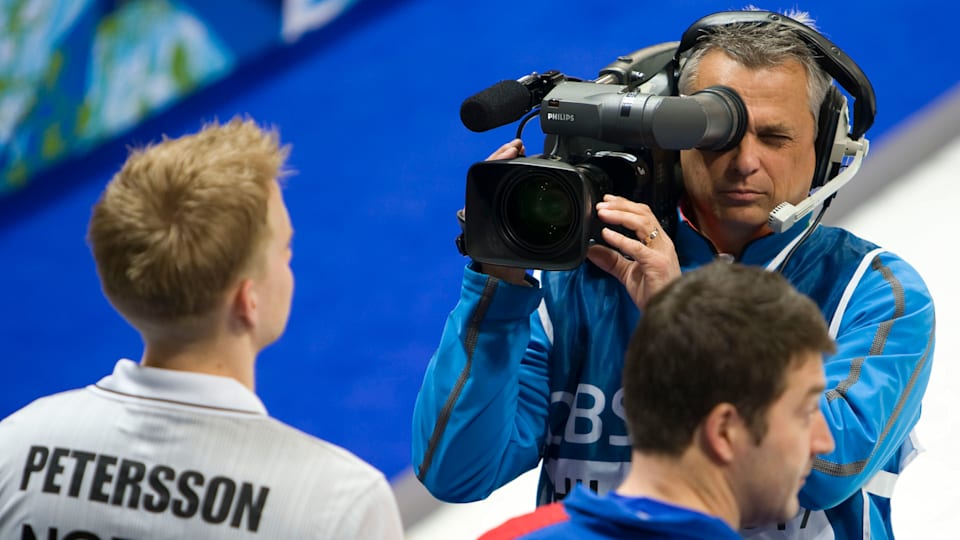OBS marks 14 years of innovation as Olympic host broadcaster
A new era of Olympic Games coverage started 14 years ago, when Olympic Broadcasting Services (OBS) first served as the sole host broadcaster at the Olympic Winter Games Vancouver 2010. Prior to these Games, the host broadcasting duties and costs were the responsibility of the local Organising Committee, and the entire host broadcast organisation had to be created from scratch for each Games.

It was due to this fact that the IOC recognised the need to establish a permanent host broadcast organisation to ensure that the highest standards of production quality were upheld across all Games and to ensure that emphasis was placed on improving overall broadcasting services and efficiencies. Further, this new structure would reduce the financial burden and sourcing of expert personnel that was previously placed on the OCOG. Upon the creation of OBS, the IOC appointed broadcasting pioneer Manolo Romero as its CEO, and under his leadership, the fundamentals of what would become an industry-leading broadcast organisation were formed.
Since 2010, broadcast coverage of the Games has evolved almost beyond all recognition, with OBS continually introducing cutting-edge technology and workflow processes to improve efficiency, reduce costs, increase sustainability, and enrich the viewing experience for Olympic fans around the world.
More coverage than ever before
OBS produced approximately 2,700 hours of coverage in the Canadian host city that was distributed globally to the IOC’s Media Rights-Holders (MRHs). This represented a significant increase over the 1,000 hours that had been produced just four years earlier for the Olympic Winter Games Torino 2006.
By the Olympic Winter Games Beijing 2022, OBS’s host broadcast coverage had evolved to produce more than 6,000 hours. This increase has offered broadcast partners around the world greater programming opportunities in more sports, enabling them to deliver more customised and diverse Olympic coverage to their audiences.
For Vancouver 2010, in addition to producing more coverage, OBS ensured its output remained at the forefront in terms of innovations and technology. This included offering a fully high-definition broadcast of a Winter Games for the first time, while also embracing digital coverage, which resulted in 300 million video views and a digital reach of 130 million people. By Beijing 2022, the exponential growth in popularity of digital platforms enabled more than 2.01 billion unique viewers to watch the Olympic Winter Games on linear TV and digital platforms.
Greater efficiencies
OBS’s Games-time operations have also developed considerably over the last 14 years. During Vancouver 2010, three separate recordings were created for all content – directly onto a video server in digital format, onto videotape and also onto DVD. Today, OBS has transitioned to fully digital workflows, eliminating the need for physical media support, and improving the global availability of content, making Olympic coverage immediately accessible to the Media Rights-Holders.
In addition, Vancouver 2010 saw printed news bulletins being hand-delivered to MRH offices in the International Broadcast Centre, while pigeonholes located close to the information counter contained printed copies of the daily competition start lists and results. All of these processes are now digitised to improve efficiency and make workflows more sustainable.
“The forefront of broadcasting innovation”
Reflecting on the evolution of Olympic broadcast coverage over the last 14 years, Yiannis Exarchos, CEO of OBS, highlighted the transformative journey OBS has embarked on, as it aims to bring fans closer to the action, emotions and stories of the world's best athletes, while setting new standards for live sports broadcasting.
“Manolo Romero revolutionised the way large sporting events are delivered to the world and created the model upon which all future host broadcast organisations would be built,” he explained.
Since OBS’s conception, we've been at the forefront of broadcasting innovation, transforming how billions of viewers around the globe experience the Olympic Games.
“From pioneering high-definition broadcasting at Vancouver 2010 to harnessing the power of cloud technologies and ultra-high definition, plus high dynamic range, for Tokyo 2020 and Beijing 2022, our journey has been marked by a relentless pursuit of excellence. As we look ahead, our commitment to sustainability, technological innovation, and storytelling excellence remains unwavering.”
A glimpse of the future
Looking ahead, OBS is currently preparing to bring the magic of Paris 2024 to fans' screens in a way that has never been seen before at the Olympic Games. With more coverage than ever before and innovative technologies being used, the stage is set for spectacular Games in Paris that will redefine how viewers experience this global event.
This will include cinematic lenses with a shallow depth of field to draw viewers into the action, dynamic, data-driven graphics to display athletes’ performances in minute detail, and a multitude of camera angles to immerse fans in their favourite sports.
During the recent Winter Youth Olympic Games Gangwon 2024, OBS also trialled artificial intelligence (AI) automation to create further efficiencies across production and editing workflows. This included the generation of OBS automatic highlights, in collaboration with Intel, and OBS generative assisted editing. AI live production technology was also tested during the ice hockey events.
OBS will build upon this knowledge and expertise to deliver the most efficient, sustainable and technologically-advanced coverage of the Olympic Games Paris 2024.